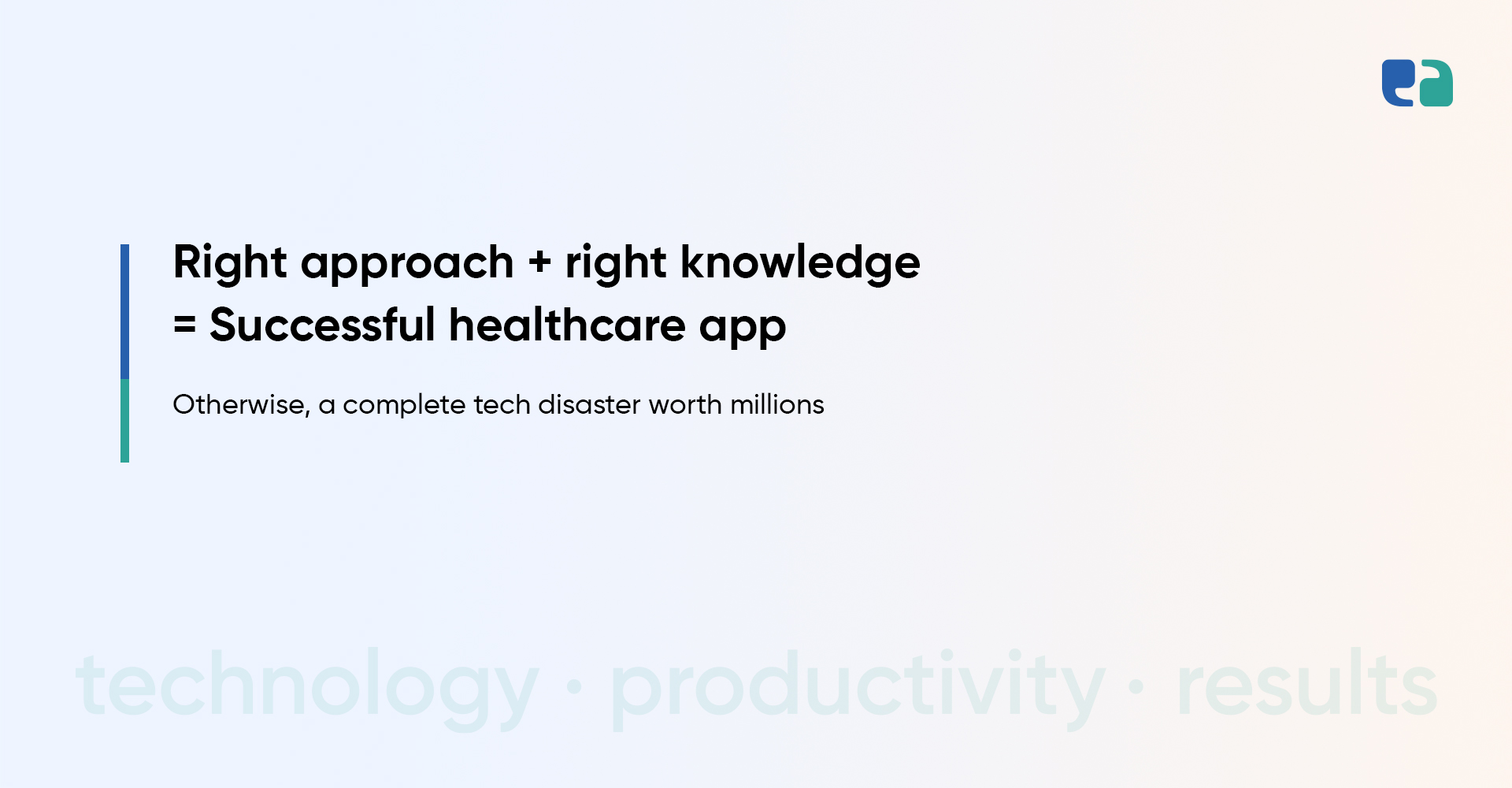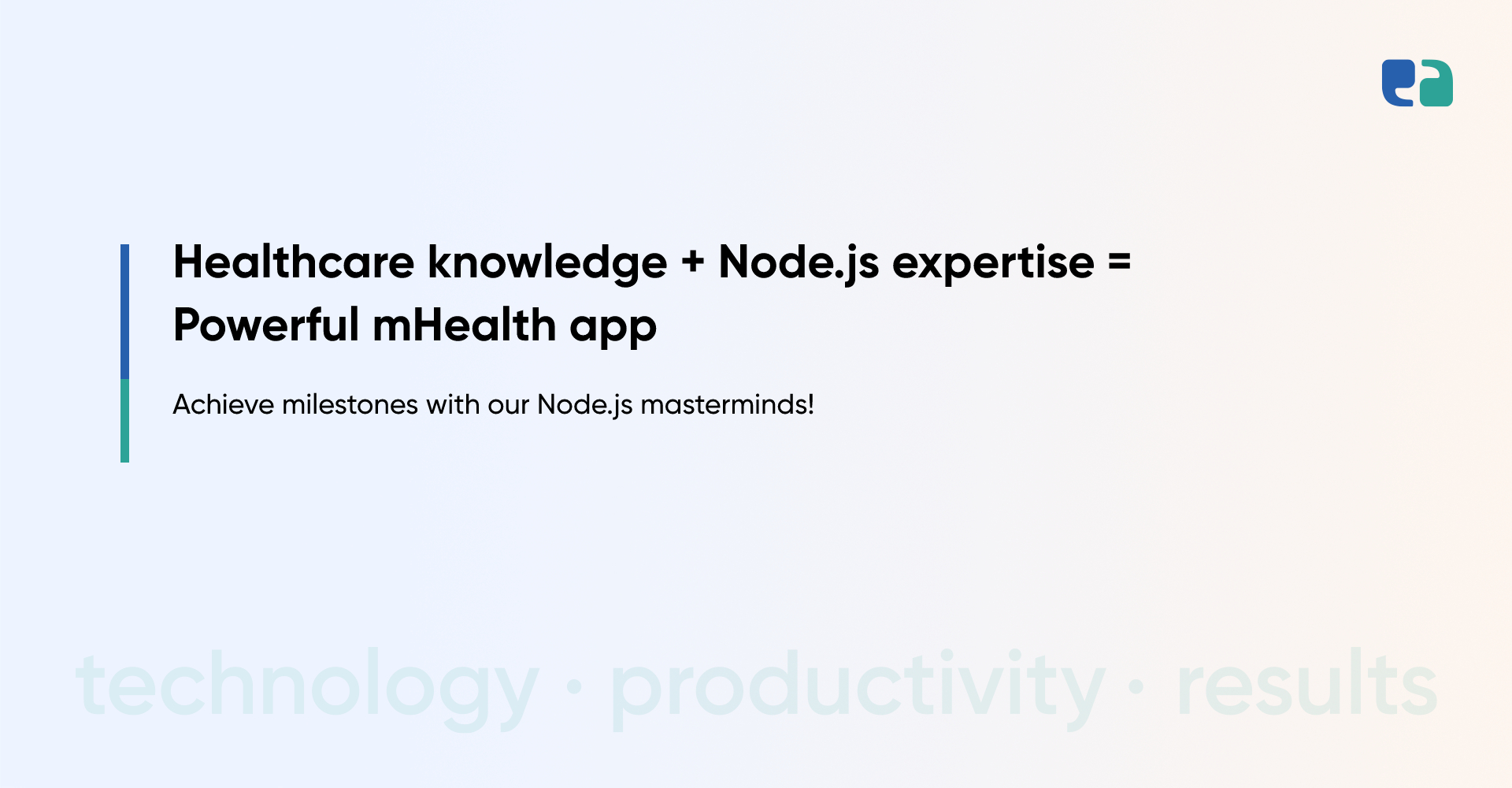Healthcare is going digital fast, but there’s one big problem—keeping patient data safe.
If you’re building a healthcare app, you can’t just throw something together and hope for the best.
HIPAA compliance is a must, and getting it wrong can mean huge fines, security breaches, and lost patient trust.
And let’s be real—healthcare data breaches are only getting worse.
In 2023, over 133 million records were exposed, and in 2024, the largest-ever breach hit 190 million people.
Off-the-shelf solutions might seem like an easy fix, but they rarely meet the unique security, workflow, and compliance needs of healthcare organizations.
That’s why custom development is the best approach—it gives you complete control over security, scalability, and integration with existing systems.
So, how do you build a secure, HIPAA-compliant custom healthcare app?
That’s exactly what this guide is here for.

HIPAA and Healthcare Apps: What You Need to Know
If you’re building a healthcare app, HIPAA compliance isn’t optional—it’s essential. It’s what keeps patient data safe and protects your app from legal trouble. But don’t worry, HIPAA isn’t as complicated as it sounds. Let’s break it down.
What is HIPAA, and Why Does It Matter?
HIPAA (Health Insurance Portability and Accountability Act) is a U.S. law that protects patient health information (PHI).
It makes sure that sensitive data—like medical records, test results, and even Social Security numbers—stays private and secure.
Key HIPAA Rules Every Developer Should Know
To make sure your healthcare app is HIPAA-compliant, you need to follow three main rules:
1. Privacy Rule – This controls who can access and share PHI. You can’t store or use patient data without proper consent.
2. Security Rule – This focuses on protecting electronic PHI (ePHI) with strong security measures like encryption, secure logins, and access controls.
3. HITECH Act – This law strengthens HIPAA and increases penalties for violations. It became even more important with the rise of telehealth and digital records.
Who Needs to Follow HIPAA?
If your app stores, processes, or transmits PHI, you must follow HIPAA. This applies to:
- Healthcare providers – Doctors, hospitals, clinics, and anyone handling patient care.
- Business associates – Companies (like app developers) that process PHI for healthcare providers.
Since custom healthcare apps often handle PHI, developers need to bake HIPAA compliance into the software from day one.
Essential Security Measures for HIPAA-Compliant Apps
When creating a HIPAA-compliant healthcare app, keeping patient data safe is a top priority. To prevent unauthorized access and security risks, here are some essential safeguards to put in place:
By combining these safeguards, you can build a healthcare app that not only meets HIPAA standards but also earns patient trust.
3 Major Technical Considerations for a HIPAA-Compliant Healthcare App
Here are some crucial technical aspects to consider:
1. Choosing the Right Deployment: Cloud vs. On-Premise
Your app can be hosted in the cloud or on-premise. Both have pros and cons:
Cloud-Based Deployment:
- Pros: Scalable, cost-effective, easy to access from anywhere, and speeds up development.
- Cons: You rely on a third-party provider, and ultimate compliance responsibility still lies with you.
- Tip: Choose a cloud provider with HIPAA certifications and a Business Associate Agreement (BAA).
On-Premise Deployment:
- Pros: Full control over data, better security, offline access, and potentially lower long-term costs.
- Cons: High upfront costs, ongoing maintenance, and limited scalability.
2. Ensuring Data Compatibility & Smooth Sharing
Your app must communicate seamlessly with other healthcare systems. Standard formats like HL7 and FHIR help ensure data is shared accurately and securely across platforms.
3. Secure Coding Practices to Protect Data
Security starts at the code level. Follow best practices like:
- Validating all user input to prevent cyber attacks (like SQL injection).
- Encoding data properly to block cross-site scripting (XSS).
- Keeping error messages vague—never expose system details.
- Logging errors securely, but never logging sensitive patient information.
Best Practices for Protecting Patient Data in a HIPAA-Compliant App
Keeping patient data private isn’t just about compliance—it’s about trust. Here are some key best practices to follow:
1. Limit Access to Only What’s Necessary
Not everyone in a healthcare organization needs full access to patient records.
Follow the Principle of Least Privilege—give users access only to the data they need for their job. This reduces the risk of insider threats and accidental data leaks.
2. Monitor Activity & Conduct Regular Audits
Constantly track who accesses the system. If something looks suspicious, act fast.
Regular security audits help identify weak spots before hackers do. Also, your app should have built-in monitoring to detect unusual activity on servers.
3. Always Have Data Backups
Cyberattacks, system crashes, or even natural disasters can cause data loss. That’s why regular backups are crucial.
Store them securely in an offsite location so data can be quickly restored if needed.
4. Securely Dispose of Unneeded Data
Old patient records shouldn’t just sit around.
HIPAA requires secure disposal of both digital and physical records. That means shredding paper documents and properly wiping electronic data.
5. Respect Patient Rights
Patients have a right to access their health data and request corrections if needed.
Your app must have clear procedures for handling these requests quickly and efficiently.

Why Custom Development is Better Than Off-the-Shelf Software
When choosing software for your business, you have two options: off-the-shelf or 3rd party solutions or custom-built software.
While pre-made software might seem convenient, custom development offers more flexibility, security, and long-term value. Here’s why:
1. Built Just for You
Custom software is designed exactly for your needs.
You don’t have to adjust your workflow to fit a generic tool. Instead, your software adapts to your business, making operations smoother and more efficient.
2. Seamless Integration
Many businesses use multiple tools.
Custom software can integrate perfectly with your existing systems, avoiding data silos and improving efficiency. Off-the-shelf solutions may not always fit in, causing workflow disruptions.
3. Better Security
Pre-built software is a common target for hackers. Custom solutions are built with your security needs in mind, reducing vulnerabilities.
In healthcare, for example, custom software can be designed to meet HIPAA and PIPEDA compliance.
4. Scales as You Grow
Your business will grow—and your software should too.
Custom applications are built for scalability, so you won’t have to replace them as your needs change. SaaS tools often require costly upgrades or new licenses.
5. Gives You a Competitive Edge
Custom software helps businesses innovate faster and operate more efficiently.
With features tailored to your industry, you can stay ahead of competitors who rely on generic solutions.
A custom HIPAA-compliant app gives you better control, tighter security, and a perfect fit for your workflows—helping you protect patient data and avoid costly fines.

How We Can Help You Build a Custom HIPAA-Compliant App
At SyS Creations, we specialize in building secure and compliant healthcare apps that protect patient data and streamline workflows. Here’s how we can help you develop a custom HIPAA-compliant app tailored to your needs.
1. Compliance-Driven Development
HIPAA compliance is integrated into every stage of our development process.
Our compliance specialists work closely with our developers to eliminate security risks and ensure your app meets all regulatory requirements. We implement:
- Strong encryption for data at rest and in transit
- Role-based access control and multi-factor authentication
- Automated logout and audit logs for tracking PHI
2. Custom Solutions for Your Unique Needs
Every healthcare organization has different workflows and security needs.
Our custom development approach ensures that your app is designed specifically for your operations. We offer:
- Seamless integration with EHRs, medical devices, and third-party APIs
- Tailored workflows to improve efficiency and compliance
- Scalable architecture to support future growth
3. Full Compliance Support
We don’t just build software—we guide you through the entire compliance process. Our team provides:
- Risk and security assessments
- HIPAA documentation and compliance audits
- Ongoing security updates and support
4. Proven Success in Healthcare IT
We have helped over 50 healthcare organizations develop HIPAA-compliant solutions.
In one case, we secured a telemedicine app by identifying and fixing 47 security gaps, making it fully compliant and ready for market.
Whether you are a startup, clinic, or enterprise, we have the expertise, technology, and compliance knowledge to build a secure and compliant healthcare app.



